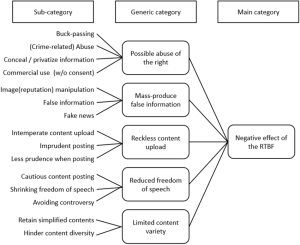Molly Russell, a 14 year old schoolgirl from London, killed herself through self harm due to depression and what the coroner concluded to be “negative effects of online content”.
It was found she had been viewing thousands of disturbing images on various social media sites, including Instagram, Facebook and Pinterest. These distressing images, including photos and descriptions of suicides, only compounded her mental health to the point of committing suicide in 2017.
At the time both social media sites had little or no moderation with regards adult content, which may have explained how Molly was able to access such imagery.
Meta, the owners of Facebook and Instagram, admitted that a lot of images uploaded back then violated its own content policies and they have apologised to the Russell family.
Moderation on these sites has improved over the years, but no site is absolutely fool-proof and a lot of responsibility needs to be with the parents to make web browsing safe for their children.
Molly’s death is of course sad and very unfortunate given her known mental health problems, but the new buzz term “Negative Effects of Online Content” is going to an overused idiom for any future scenarios where people suffer similar bouts of depression through viewing disturbing content on the internet as a whole and not just social media sites.
There are measures in place with most web browsers where parents can moderate what their children are able to see. But it means having to access all of their children’s devices and put those options in place. However, kids will always find workarounds by going on Google or YouTube to find out how.
What is even more concerning is that this might promote even more censorship from the controllers of web browsers such as Google Chrome, Mozilla Firefox and Microsoft Edge/Bing. We have already seen them take action against racist and homophobic comments and imagery; the next step will be micro-aggressions, and other “offensive” content that could be construed as “negative”
Both online websites and parents themselves need to be more responsible in order to protect what children can access. But this shouldn’t mean introducing a form of censorship that will affect the majority of people through no fault of their own.
However, as we have seen in other current affairs news, the minority always seem to be able to get what they want at the expense of the majority.
Nominated by: Technocunt


………..https://youtu.be/If9fC9aJd-U
0
One to finish from me….https://youtu.be/If9fC9aJd-U
2
I have to applaud your musical taste sir. Well done.
1
Awesome DF
1
Another favourite from me for those who have more than their fair share of life’s challenges.
https://youtu.be/RQOaLP-qPmk
3
Indeed Paul.
Classic.
1